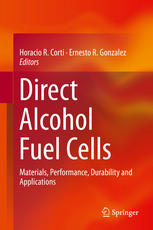

Most ebook files are in PDF format, so you can easily read them using various software such as Foxit Reader or directly on the Google Chrome browser.
Some ebook files are released by publishers in other formats such as .awz, .mobi, .epub, .fb2, etc. You may need to install specific software to read these formats on mobile/PC, such as Calibre.
Please read the tutorial at this link: https://ebookbell.com/faq
We offer FREE conversion to the popular formats you request; however, this may take some time. Therefore, right after payment, please email us, and we will try to provide the service as quickly as possible.
For some exceptional file formats or broken links (if any), please refrain from opening any disputes. Instead, email us first, and we will try to assist within a maximum of 6 hours.
EbookBell Team

5.0
48 reviewsDirect Alcohol Fuel Cells: Materials, Performance, Durability and Applications begins with an introductory overview of direct alcohol fuel cells (DAFC); it focuses on the main goals and challenges in the areas of materials development, performance, and commercialization. The preparation and the properties of the anodic catalysts used for the oxidation of methanol, higher alcohols, and alcohol tolerant cathodes are then described. The membranes used as proton conductors in DAFC are examined, as well as alkaline membranes, focusing on the electrical conductivity and alcohol permeability. The use of different kinds of carbon materials as catalyst supports, gas diffusion layers, and current collectors in DAFC is also discussed. State of the art of the modeling is used to estimate performance and durability. The closing chapter reviews the use of DAFC in portable equipment and mobile devices and features a detailed discussion on the mechanisms of component degradation which limits their durability.
This book is written to facilitate the understanding of DAFC technology, applications, and future challenges. It is an excellent introduction for electrochemical and material engineers interested in small fuel cells as portable energy sources, scientists focused on materials science for energy production and storage, as well as policy-makers in the area of renewable energies.